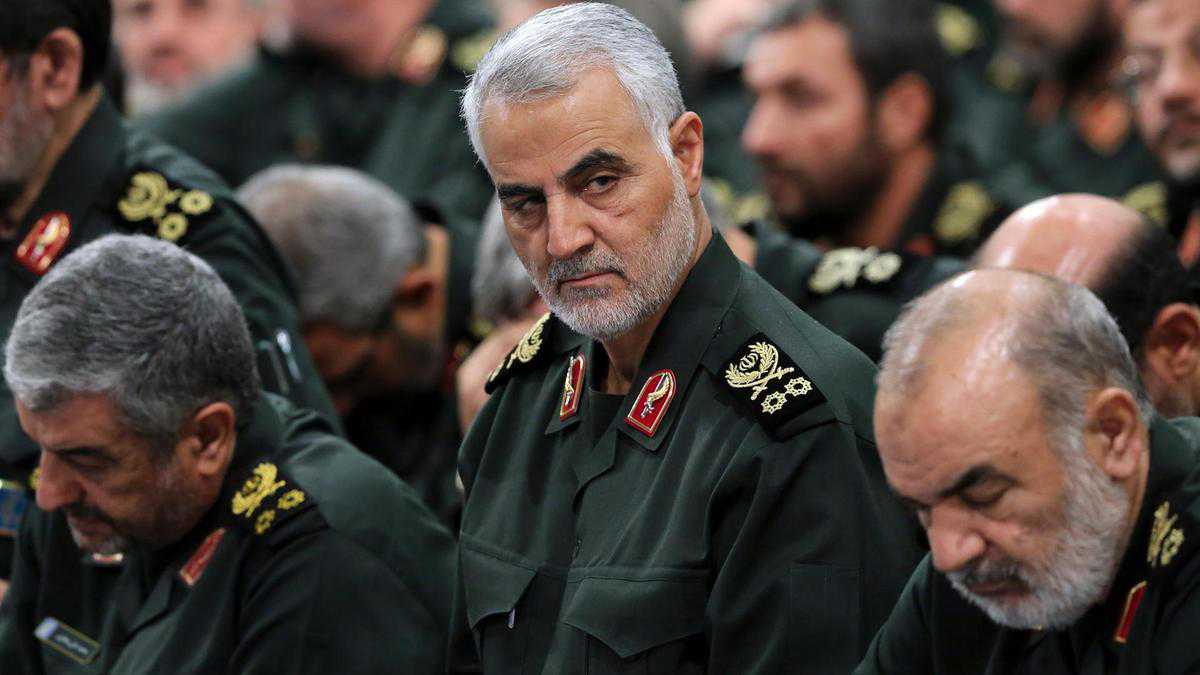Suleimani strike not the armed service game-changer America wanted
01 January, 2021

What sort of US tells it, the drone strike that killed Iranian general Qassem Suleimani a year ago this week was a armed service operation to eradicate the linchpin of Tehran’s regional web of proxy militias.
Twelve months following the drone strike at Baghdad airport, US generals even so discuss the grave threat Tehran poses to the spot, including with the repeated rocket attacks over the US embassy in the Iraqi capital with the most recent on December 20.
On the first anniversary of Suleimani’s death, it really is clear that Iran suffered the increased loss of a canny army hero, but the killing was not any game-changer in the four-decade struggle between Washington and Tehran.
“The assassination punctured the mystique of Suleimani as impenetrable and his Quds Drive as undefeated,” Behnam Ben Taleblu, an Iran expert at the building blocks for Defence of Democracies think tank, told The National.
“He had not been replaced by a person with comparable charisma or connections. But Suleimani’s accomplishment was the creation of comparatively self-enough armed militias that remain in a position and aligned with Tehran.
“These grass roots armed service operations will stay until they are tackled about the battlefield.”
Suleimani was killed found in a US drone strike in Baghdad AIRPORT TERMINAL on 3 January 2020. The 62-year-old led the Quds Drive, a branch of Iran's Islamic Revolutionary Safeguard Corps (IRGC) that ran foreign intelligence and unconventional warfare functions.
He was widely viewed as the second most effective man found in Iran after Supreme Leader Ayatollah Ali Khamenei and was credited with co-opting and co-ordinating militias found in Lebanon, Syria, Iraq and beyond, forging a Shiite axis of affect over the Middle East.
Suleimani’s detractors blame him for the deaths of hundreds of American servicemen found in Iraq, waves of attacks on Israel and a plot to murder a Saudi envoy to the US. To numerous Iranians, he was a patriotic warrior-philosopher.
Talking to journalists last month, US Gen Kenneth McKenzie defined Suleimani seeing that “cut-throat and ruthless” and the “magnetic, charismatic leader” who “pulled all of the threads with each other” in a world wide web of armed groups.
Tehran was weakened by the loss of life of a good “strong battlefield character” from the first years of its revolution, said Gen McKenzie. His loss “unhinged Iran’s capability to direct” far-flung proxy forces, which perform fewer attacks nowadays.
Nonetheless, added Gen McKenzie, those “Iranian-backed rogue militia teams” in Iraq and elsewhere have plenty even more rockets to start and Iran even now yearns to “avenge” Suleimani’s death and may step up attacks.
The US was ready for salvos on the anniversary and would “react”, he warned.
The true impact of Sulemani’s death is hard to measure. Days gone by year has also seen Iran’s economy battered by Washington’s “optimum pressure” sanctions advertising campaign, low oil rates and the coronavirus pandemic.
Suleimani was replaced by the deputy commander of the expeditionary Quds Pressure, Gen Esmail Qaani, who lacked his predecessor’s connections with leaders of Hezbollah, the Lebanese militia, and other proxies.
For Ali Alfoneh, an analyst at the Arab Gulf Claims Institute in Washington, a think container, the Quds Force is a “highly institutionalised organisation” within the 125,000-good IRGC and its own “operations were not disrupted by the assassination”.
But very much has changed recently, he added.
Following the 2003 US-led invasion of Iraq, Suleimani used his growing notoriety in the US and his social mass media profile as a “mobilisation force for a holy cause”, stated Mr Alfoneh. Gen Qaani provides dodged the limelight.
“Lacking charisma, Qaani, who's an efficient manager more familiar with Excel charts than delivering rousing speeches to the masses, has turned the clock back again to the pre-2003 period, when the Quds Force operated in the shadows,” stated Mr Alfoneh.
Nima Mina, an Iran professional at the School of Oriental and African Studies in London, sees complications for the Quds Force under Gen Qaani, who lacks the “political fat, charisma, communication expertise and authority to fill Suleimani’s shoes”.
Whereas Suleimani and Khamenei had a close interconnection, Gen Qaani lacks this “personal romance and trust” with the Supreme Leader, with worrying implications for the very best of the brand new regime, added Mr Mina.
“The absence of real political parties and the weakness of political institutions try to make the role of individual political and armed service figures in Iranian politics and in the Islamic Republic's zone of influence beyond your country all the more important,” said Mr Mina.
Without Suleimani’s network of contacts in the Levant, Gen Ghaani has struggled to bring together the leaders of Iraq’s Shia faction and steer politics in Baghdad, contributing to a wave of anti-Iran protests in Iraq recently, said Mr Mina.
Worse even so, Gen Ghaani has failed to effectively replace Abu Mahdi Al Muhandis, the founder of Kataib Hezbollah and deputy head of the Hashd Al Shaabi Iraqi paramilitary group, who was killed alongside Suleimani found in last year’s US drone strike.
“The Quds Force is not able to react and rebel against the Trump administration’s aggressive approach against it and its allies in Iraq,” said Mr Mina. “US bombings of Kataib Hezbollah bases remained unanswered.”
Source: www.thenationalnews.com
